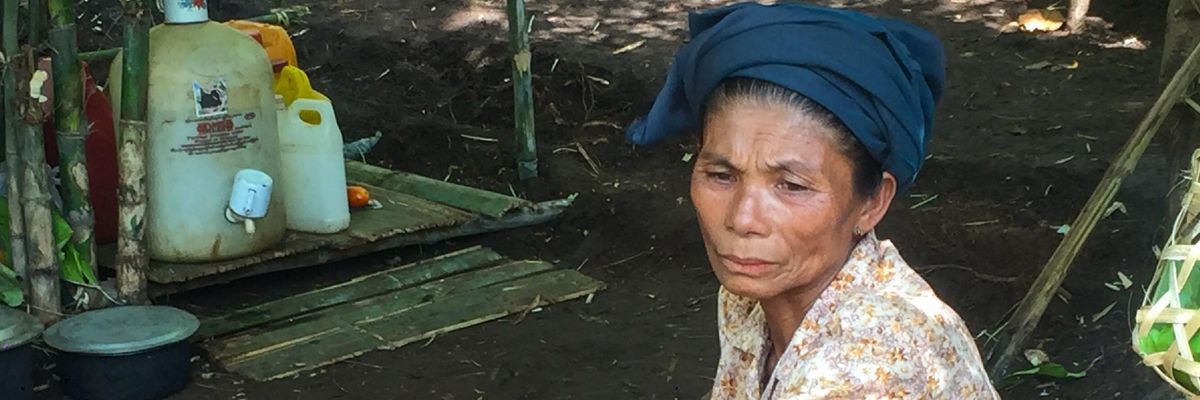The United Nations special rapporteur for Myanmar warned Tuesday that persistent violence waged by the nation's military junta could lead to "mass deaths from starvation, disease, and exposure" as more than 100,000 people have been forced to flee for their lives into nearby forests, where they lack access to food, safe drinking water, and adequate shelter.
"It has been reported that junta forces are stopping aid from reaching these desperate people by setting up military blockades," said Tom Andrews, who has served as the U.N.'s special rapporteur for Myanmar since last year. "I have also received distressing reports that junta forces are laying landmines on public roads. Any pressure or leverage U.N. member states can put on the junta must now be exerted."
"These attacks against civilians throughout Kayah State are the latest in a series throughout Myanmar causing massive displacement and humanitarian suffering."
--Tom Andrews, U.N. special rapporteur for Myanmar
The military junta seized control of Myanmar's government in February after the nation's armed forces arrested civilian leader Daw Aung San Suu Kyi and declared a state of emergency, transferring power to top general Min Aung Hlaing.
The coup sparked mass street protests that have been met with vicious repression by Myanmar's military, which since taking power has killed more than 800 civilians, detained nearly 6,000 people, and subverted the Southeast Asian country's tenuous steps toward democracy.
According to the U.N., around 100,000 men, women, and children have been internally displaced in Kayah State, where members of the People's Defense Force--a group formed in opposition to the coup regime--have fought Myanmar's heavily-armed military.
One activist in Kayah State told NBC News that some people who have been forced to flee their homes "have to survive on rice broth as we cannot deliver rice bags to them." The activist said members of the Myanmar military have been arresting people for attempting to deliver aid to the displaced.
Al Jazeera reported Tuesday that "people living in Kayah [say] the military has launched indiscriminate air attacks and shelling in civilian areas after fighting broke out on May 21 between the security forces" and the People's Defense Force.
"There have been several deaths, including that of a 14-year-old boy who was shot dead in Loikaw township and a young man who was shot in the head with his hands tied behind his back," Al Jazeera continued. "The military has repeatedly attacked churches in the predominantly Christian area, in one instance killing four people who were among 300 villagers sheltering at a Catholic church in Loikaw."
In his statement on Tuesday, Andrews said the international community must push the Myanmar regime to immediately "stop terrorizing the population" and "open access roads and allow life-saving aid to reach those in need."
"These attacks against civilians throughout Kayah State are the latest in a series throughout Myanmar causing massive displacement and humanitarian suffering, including Mutraw in Karen State, Mindat in Chin State, and Bago City, among other areas," said Andrews. "Now more than ever, the international community must cut off access to the resources the junta needs to continue these brutal attacks on the people of Myanmar."

